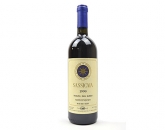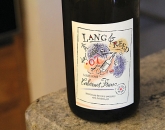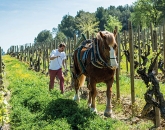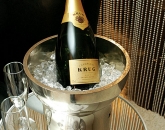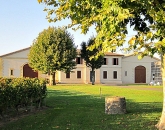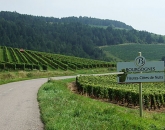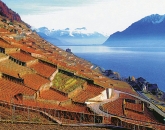Acker Merrall and Condit however does sales of fine wines, spirits and cigars exclusively, and in terms of revenue has been the most successful wine auction firm in the world for six of the last seven years. More than half of its profits are now made in Hong Kong and its auctions here have set world records for prices paid for fine wines with almost monotonous regularity.
In November last year auctioneer and AMC CEO John Kapon brought the hammer down on sales of HK$46.8 million in a two- day auction, dominated, interestingly, not by first growth Bordeaux as would have been the case until recently, but by rare high-end Burgundy.
One 12-bottle case of the 1988 Romanée-Conti sold for HK$1,033,200, and three bottles of 2005 Romanée -Conti fetched HK$541,200, establishing new world auction records per bottle for both vintages of the wine.
Although Bordeaux dominated the more spectacular auction results until quite recently, some disillusionment with Lafite, Latour et al seems to have set in among Mainland buyers, partly because of the proliferation of fake bottles in circulation in China and elsewhere.
Interest has shifted not just to Burgundy, but also to the wines of the Rhone Valley, Piedmont and Tuscany.
We can expect many more wine auctions this year from AMC and its competitors – but is all the attention being paid to second-hand wine changing hands for preposterous sums of money necessarily a good thing?
Fine wine retailers on the whole tend to think not, arguing that auction rooms are emotional places, and that extravagant bids inflate the notional value of wines that would not sell at equivalent prices through other channels. They also argue that wines sold at auction are not always of impeccable provenance. Certainly some have been the subject of law suits. Some may be fakes. Others may have been less than impeccably stored – although increasingly wines sold at auction are ex-chateau, or come from the cellars of serious collectors known to have looked after them properly.
Auction results probably also encourage the owners of top chateaux to inflate the prices they ask for their wines en primeur.
Are the prices currently being paid a bubble waiting, if not to burst, at least to somewhat deflate?
One of the reasons for the intensity of auction activity in Hong Kong may be a suspicion on the part of the auction houses that the business they are currently enjoying is too good to last.
Certainly the Mainland money is showing signs of getting smarter. Record prices are still being paid, but “white glove” auctions at which every lot sells are now the exception rather than the rule. Prices being paid for top Bordeaux on average are down by about 10 per cent from their peak.
Bargains at auction, however, are few and far between. Some rare wines are available through no other channel, but generally speaking auctions are an expensive way to fill a cellar. It is, however, worth tracking which wines are becoming fashionable at auction, with a view to acquiring them from merchants before the auctioneers inflate the price.
It’s too late for Bordeaux and Burgundy. Time to look carefully at Italy and the Rhone. Spain will probably be next.
Pages
Click here to see the published article.


